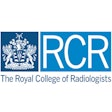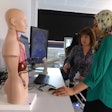
As the dust continues to settle on last month's radiation therapy overdose litigation and prison sentences in France, experts believe the gravity of the case relates to the attempts to conceal the errors, and they are keen to see reinforcement of a culture in which staff are encouraged to report and not hide mistakes.
The cases that occurred at the Jean Monnet Hospital, Epinal, France, resulted from two key errors. First, incorrect calibration of radiation therapy machines during installation in 2004, and, second, human error that resulted in prior radiotherapy doses not being factored into treatments carried out between 2001 and 2006.
"In this particular case, it appears the inappropriate treatments that led to overexposure of these patients resulted from system calibration errors," said Alan Perkins, PhD, the director of the Academic Medical Physics Group and a professor of medical physics at the University of Nottingham, U.K. "They used the wrong ionization chamber to define the output of the machines, underestimating the dose given."
 Staff must feel confident enough to come forward and report an error, Alan Perkins, PhD, said. Image courtesy of European Society of Radiology.
Staff must feel confident enough to come forward and report an error, Alan Perkins, PhD, said. Image courtesy of European Society of Radiology.In effect, this meant the system was set up with the incorrect set of files, and over a six-year period, patients treated with that equipment suffered injury and, worse still, fatalities, he added. Furthermore, instead of the accused admitting that they had discovered a fault, contacting patients, and investigating the nature of the fault to ensure this would not occur again, it appeared the individuals concerned tried to conceal the errors.
"In the U.K., we try to have an open culture in the NHS [National Health Service], so people can feel confident enough to come forward and report an error if necessary. The culture of restricting NHS workers from talking to outsiders appears to be in the past, following a recent announcement by the health secretary," noted Perkins, who spoke at a medicolegal session at ECR 2013 earlier this month.
Jim Thurston, a radiation protection specialist at the Institute of Physics and Engineering in Medicine in the U.K., also remarked that it was essential to encourage a working environment where radiotherapy staff can feel secure in open and honest reporting. "Incidents due to human error do occur, and we should be encouraging the reporting of these immediately by the staff involved, not threatening them with court cases and possible imprisonment," he said.
He pointed out that any attempt to destroy or hide evidence could be detrimental for patients too, and there could be a negative impact on patient safety if staff thought they could be prosecuted for mistakes made and tried to hide them. In the U.K., clinical scientists, including physicists, have a compulsory professional registration scheme, administered by the Health Professions Council.
Any person who was to destroy or hide evidence in an attempt to cover up their mistakes could expect to be struck off the register, whether temporarily or permanently, and they would not necessarily be struck off for the actual mistakes themselves, he explained.
Training and effective management
Perkins is a firm believer in the value of appropriate training programs for all staff, which should help to eliminate the cause of error in the first place.
"Good training is essential, as well as ensuring that staff are appropriately qualified. Sometimes individuals are put in a difficult position where they are acting above their qualifications, such as when there are staff shortages," he noted. "It's important that people feel prepared to freely say, 'I'm not trained to do this' if necessary."
Additionally, clinical staff must receive support by appropriately qualified scientific staff, and quality assurance programs should be in place. Furthermore, training also needs updating over time. "Radiotherapy is a high technology, a complex line of work, and, as a result, people need to be given support and opportunity to train and maintain that confidence over time," he said.
Equipment providers also have a duty of care to ensure equipment is being used appropriately, Perkins emphasized. They need to ensure staff are trained and working appropriately with their products, and that a good ongoing dialogue is maintained between a vendor and the scientific staff.
The management culture should not be forgotten for its role in ensuring error is minimized, and he said that disorganized lines of accountability caused the incidents in the North Staffordshire Hospital in the late 1980s and early 1990s. "The big issue here was that there were separate lines of accountability for different groups of staff and therefore management was not considered cohesive enough," he said.
Other radiotherapy overdose cases
The recent French case is not the first such incident of serious radiotherapy overdose, with others reported in the U.S., Europe, and Asia, but the punishment this time around went beyond job dismissal to conviction, imprisonment, and bans on practice ranging from five years to life. According to the International Atomic Energy Agency (IAEA) records, notable U.K. incidents include those in 1982 and 1990 at North Staffordshire Hospitals, in 1988 at the Royal Devon and Exeter Hospital, and in 2006 at the Beatson Oncology Centre in Glasgow involving a 15-year-old girl who died as a result.
In 2007-2008, a report, "Towards Safer Radiotherapy," from the U.K. National Patent Safety Agency, discussed the main themes underlying radiation incidents. The document showed that about 20% of incidents were due to inaccuracy in dose delivery and 27% due to delay in patients receiving the dose.
"Timely treatment is important," Perkins remarked. "If a department cannot cope with referrals, then patients will not be treated in time to make an impact on their disease."
He also stressed that with radiotherapy, the situation can get very serious when things go wrong. He provided a breakdown of five main causes of radiotherapy error:
Equipment malfunction: This can lead to incorrect dosing that can be either too high or too low, the latter of which could have serious adverse effects just as overexposure can.
Servicing of equipment by external engineers that is not clearly reported to hospital staff. Equipment modifications need to be documented and made available for staff to reference. Perkins advised there needed to be a thorough report, control, and collaboration between external engineers and staff.
Individual human error in which the medical procedure was not carried out correctly.
Protocol error in which the protocol was incorrect or not followed carefully.
Quality control, which if not carried out properly, allows errors to slip through unchecked.
The legal framework for the protection of patients exposed to ionizing radiation for diagnosis or treatment of a medical condition is based on a European Commission Directive (Council Directive 97/43/EURATOM). In the U.K., the directive has been translated into U.K. law as the Ionising Radiation (Medical Exposures) Regulations 2000 (SI 2000, No. 1059), known as IRMER.
"As with all health and safety-related regulation, an onus is put on the employer to ensure compliance, and often the chief executive [of a hospital trust] will be the one appearing in court if an event is considered to be a serious breach of the regulations," Thurston pointed out.
The employer should have processes in place to ensure that all employees do their jobs properly, he said. If then there is a failure, then the employer has failed in this duty. Yet there are also legal duties and responsibilities placed on specific persons under IRMER. The practitioner, normally a radiotherapy clinician or radiologist, must justify that every medical radiation exposure will have a clinical benefit to the patient that outweighs the risk. The operator, who physically pushes the button or carries out an associated task to expose the patient to radiation, must optimize the exposure.
"For a diagnosis, optimizing means minimum radiation dose whilst getting the clinical benefit of the exposure, or for treatment, that it is as close as possible to the radiation dose that has been prescribed to treat or kill the cancer," he said.
In the Epinal cases, in addition to incorrect calibration of machines, the accused practitioners did not fulfill their duty in optimizing the exposures, according to Thurston. However, echoing the comments made by Perkins, he also noted the real issue is that at least one of the persons involved tried to cover it up by getting rid of evidence.
















